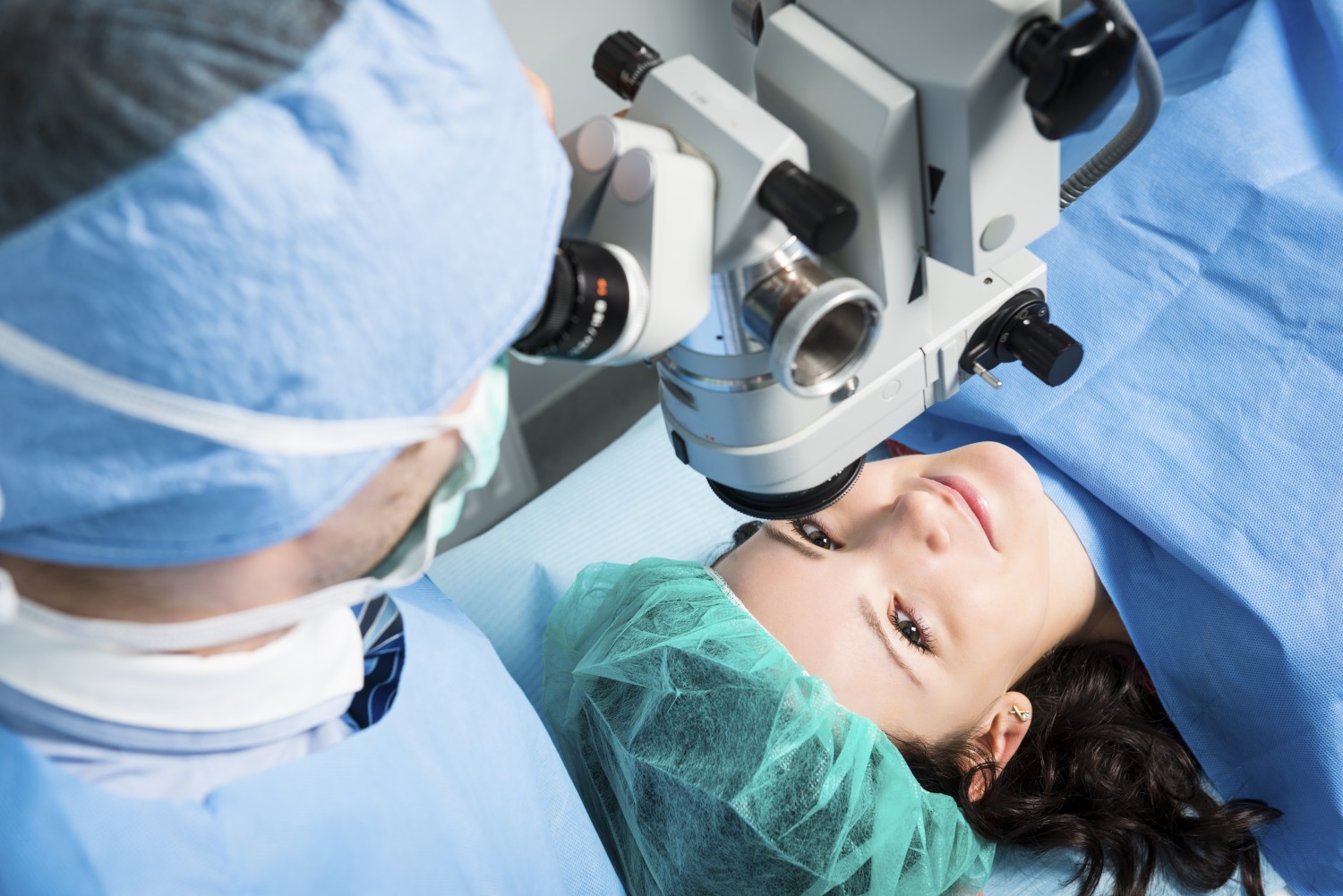
Image Source
So you're about to experience clearer vision with laser eye surgery. This is a personal journey. Everyone recovers a bit differently, just like some people bounce back from a tough workout faster than others.
Understanding what to expect after laser eye surgery is important. It is just as crucial as your pre-op appointment.
What Happens During Laser Eye Surgery
Before walking through the recovery, let's understand the surgery itself. Imagine your eye like a camera. The cornea, the front part, focuses light. Nearsightedness, farsightedness, or astigmatism occur when light doesn't focus correctly on your retina.
LASIK surgery uses a laser to reshape your cornea. This ensures light focuses properly, giving you clearer vision without relying solely on glasses or contact lenses.
Immediately After Surgery: What to Expect
Right after surgery, your vision might be blurry. It might even feel like looking through a haze. Your eyes may also feel gritty, sensitive to light, or watery.
Don't worry, these are normal side effects and will gradually improve, typically within 24 to 48 hours. Having someone drive you home is a good idea. You don't need the added stress of blurry vision while driving.
Around 80 – 90% of healing occurs within the first day after LASIK. The remaining visual recovery depends on your prescription. This quick recovery time makes it a popular choice. Most people return to work and even drive within 24 hours.
Always follow your surgeon's specific advice. Your care plan matters. LASIK surgery has a slightly longer initial recovery. Full visual improvement can take 4-6 weeks, but your surgeon may recommend more rest if needed. Following your surgeon's instructions and taking prescribed medications is vital.
Navigating the First Few Days
Think "rest and recovery" during the initial laser eye surgery recovery stages. Avoid activities that strain your eyes. This includes reading, using computers, phones, or watching television.
Excessive screen time dries out your eyes. Dry eyes are already common after surgery. It can also increase eye strain. Rest is highly recommended for the first 24 hours after LASIK. Most ophthalmologists allow patients to watch TV after just six hours.
You can gradually reintroduce these activities as your eyes feel more comfortable. Remember, moderation is key. Listen to your body and give your eyes the rest they need.
The Long Game: Weeks to Months
Your vision will continue to improve, becoming clearer and more stable over the following weeks. Most people recover from LASIK surgery quickly. Keep in mind, everyone's eyes heal at their own pace.
While vision begins settling one to three days after LASIK, complete healing can take three to six months. Attending all follow-up appointments with your ophthalmologist after eye surgery is crucial. This allows them to monitor your progress.
Lifestyle Tips for Smooth Sailing
Part of a smooth recovery is adjusting to new eye care routines. Imagine constantly adjusting your glasses while jogging. It's distracting. After vision correction, you'll enjoy the freedom to participate in various sports and activities.
Over 95% of LASIK patients experience a successful procedure. This is something to discuss with your doctor at follow-up appointments. They can provide personalized guidance and address any concerns.
Here are a few lifestyle adjustments to promote healing in the weeks and months after surgery.
Protect Those Peepers:
- Always wear sunglasses outside.
- Eye shields, like a patch or protective goggles, can be helpful while sleeping, especially during the first week. Your surgeon might place a shield over your eyes after the procedure.
Keep it Clean:
- Use lubricating eye drops as prescribed. Dry eyes are common post-op and can last several months. Even a slight variation from the prescribed usage could impact healing.
- Take a break from makeup. It can irritate your healing eyes. Tiny particles from powders, chemicals, and fragrances in cosmetics can irritate sensitive eyes, especially after surgery. Wait at least two weeks before applying any mascara or eyeliner, and apply only to your upper lashes.
Take a Break:
- Avoid swimming and hot tubs. These increase the risk of water entering your eyes and potentially causing infection.
- Stay away from smoky and dusty environments. This will minimize eye irritation during healing and contribute to overall eye surgery recovery.
- Put strenuous activities on hold to minimize complications. Avoid strenuous activity or exercise for the first week following the procedure to reduce eye strain. Light stretches and walking are generally acceptable if you take precautions to protect your eyes. However, you should avoid any exercises that cause rapid movements, such as running or aerobics, for the first few weeks after surgery.
- Skip contact lenses, at least initially. Wait for your doctor's approval, usually around two to three months after surgery. This ensures your eyes have healed. The pressure from contact lenses could delay healing or cause damage. Your eye doctor may recommend gas permeable lenses over soft lenses if contacts are necessary. Their rigidity helps them maintain their shape on your eye's surface.
Potential Risks and When to See a Doctor
Complications after Lasik surgery are relatively rare, but it's important to understand potential risks. These risks depend on your overall eye health, genetics, and how closely you follow post-surgery instructions.
Discuss any eye surgery and problems with a medical professional immediately after laser surgery. These include:
- Increased eye pain
- Worsening vision
- Eye discharge
- Increased bleeding
- Signs of infection
- Flap dislocation
These post-surgery issues can be concerning, so contact your surgeon immediately if you experience any of these or other new symptoms. Prompt treatment ensures the fastest and safest recovery.
Stay informed throughout your recovery journey, from the first post-op moments to months later. This knowledge will empower you to maximize your improved vision.
Laser eye surgery recovery is a journey, not just a few days. Understanding the process, recognizing normal symptoms, adopting healthy lifestyle changes, and knowing when to seek medical attention will build confidence. You'll experience a smoother recovery and enjoy the freedom of clearer vision.







